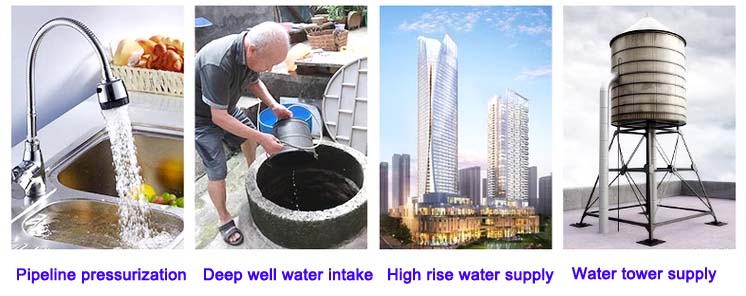English
- Afrikaans
- Albanian
- Amharic
- Arabic
- Armenian
- Azerbaijani
- Basque
- Belarusian
- Bengali
- Bosnian
- Bulgarian
- Catalan
- Cebuano
- Corsican
- Croatian
- Czech
- Danish
- Dutch
- English
- Esperanto
- Estonian
- Finnish
- French
- Frisian
- Galician
- Georgian
- German
- Greek
- Gujarati
- Haitian Creole
- hausa
- hawaiian
- Hebrew
- Hindi
- Miao
- Hungarian
- Icelandic
- igbo
- Indonesian
- irish
- Italian
- Japanese
- Javanese
- Kannada
- kazakh
- Khmer
- Rwandese
- Korean
- Kurdish
- Kyrgyz
- Lao
- Latin
- Latvian
- Lithuanian
- Luxembourgish
- Macedonian
- Malgashi
- Malay
- Malayalam
- Maltese
- Maori
- Marathi
- Mongolian
- Myanmar
- Nepali
- Norwegian
- Norwegian
- Occitan
- Pashto
- Persian
- Polish
- Portuguese
- Punjabi
- Romanian
- Russian
- Samoan
- Scottish Gaelic
- Serbian
- Sesotho
- Shona
- Sindhi
- Sinhala
- Slovak
- Slovenian
- Somali
- Spanish
- Sundanese
- Swahili
- Swedish
- Tagalog
- Tajik
- Tamil
- Tatar
- Telugu
- Thai
- Turkish
- Turkmen
- Ukrainian
- Urdu
- Uighur
- Uzbek
- Vietnamese
- Welsh
- Bantu
- Yiddish
- Yoruba
- Zulu
Telephone: +86 13120555503
Email: frank@cypump.com
Aug . 06, 2024 07:31 Back to list
Understanding the Benefits and Applications of Closed Impeller Slurry Pumps for Efficient Pumping Solutions
Understanding Slurry Pumps with Closed Impellers
Slurry pumps play a crucial role in various industries, including mining, chemical processing, and wastewater treatment, where the transport of abrasive and viscous fluids is essential. Among the different types of slurry pumps, those equipped with closed impellers are particularly noteworthy for their efficiency and performance.
What is a Slurry Pump?
A slurry pump is designed to handle a mixture of liquid and solid particles, commonly referred to as slurry. This fluid can be composed of various materials, including sand, clay, coal, and other industrial by-products. Slurry pumps are engineered to manage viscous fluids that are too abrasive or thick for standard pumps. Therefore, they are equipped with specialized components capable of withstanding wear and tear.
The Role of Impellers in Slurry Pumps
The impeller is a vital component of a slurry pump, responsible for converting rotational energy into kinetic energy to propel the slurry through the pump system. There are two main types of impellers used in slurry pumps open and closed impellers. Each type offers distinct advantages based on the application requirements.
Closed Impellers An Overview
Closed impellers consist of two parallel disks or shrouds that encase the blades. This design allows for a more controlled flow path, which can significantly enhance the pump's efficiency. The closed impeller is particularly well-suited for applications involving finer particles and slurries with higher specific gravities.
Benefits of Using Closed Impellers in Slurry Pumps
slurry pump closed impeller

1. Higher Efficiency Closed impellers tend to provide better hydraulic efficiency compared to open impellers. This means that more of the energy supplied to the pump is effectively converted into fluid motion, resulting in reduced operational costs and energy consumption.
2. Improved Head Generation The design of closed impellers is such that they generate a higher amount of head, allowing the pump to transport slurries over longer distances and to higher elevations. This is particularly advantageous in mining operations where materials may need to be moved from deep underground to surface processing facilities.
3. Enhanced Solids Handling The enclosed nature of the closed impeller minimizes the risk of particle clogging or blockage, which can be a significant issue in slurry pumps. This is especially beneficial when dealing with heterogeneous mixtures or slurries containing a wide range of particle sizes.
4. Reduced Wear While all slurry pumps experience wear due to the abrasive nature of the fluids they handle, closed impellers typically experience lower wear rates compared to open impellers. The absence of exposed blades in closed impellers protects the pump from abrasive particles, thereby extending the lifespan of the pump and reducing maintenance costs.
Applications of Closed Impeller Slurry Pumps
Closed impeller slurry pumps find applications across a variety of industries. In the mining sector, they are used to transport concentrate slurries and tailings. In the chemical industry, these pumps effectively handle corrosive and abrasive chemical slurries. Wastewater treatment facilities also utilize closed impeller slurry pumps to manage sludge and other particulate-laden fluids.
Conclusion
In summary, closed impeller slurry pumps represent a significant advancement in the design and performance of pumps used for transporting abrasive and viscous slurries. Their efficiency, durability, and ability to handle various types of solids make them an ideal choice for industries where reliable fluid transport is crucial. As technology continues to evolve, it is likely that we will see further innovations in the design of slurry pumps, enhancing their capabilities and applications in the years to come.
-
ISG Series Vertical Pipeline Pump - Chi Yuan Pumps Co., LTD.|Advanced Hydraulic Design&Energy-Efficient Solutions
NewsJul.30,2025
-
ISG Series Vertical Pipeline Pump - Chi Yuan Pumps Co., LTD.
NewsJul.30,2025
-
ISG Series Vertical Pipeline Pump - Chi Yuan Pumps Co., LTD.|energy-efficient fluid handling&industrial durability
NewsJul.30,2025
-
ISG Series Vertical Pipeline Pump - Chi Yuan Pumps | Advanced Engineering&Industrial Efficiency
NewsJul.30,2025
-
ISG Series Pipeline Pump - Chi Yuan Pumps | High Efficiency, Energy Saving
NewsJul.30,2025
-
ISG Series Vertical Pipeline Pump-Chi Yuan Pumps|High Efficiency&Reliable Performance
NewsJul.29,2025










